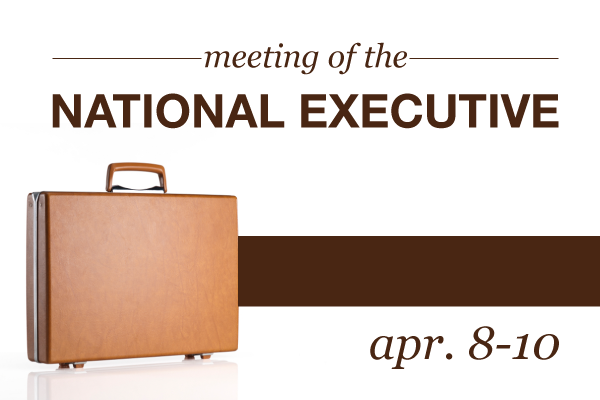
Can you imagine having to work twelve hours a day, six days a week? We’re not talking about being a workaholic; we’re talking about life before trade unions!
It was around this time in 1872 that the workers in Hamilton and Toronto began demanding nine-hour workdays. Among them were printers who worked for the Toronto Globe and the Toronto Mail.
On March 25, 1872, members of the Toronto Typographical Union walked off the job. Other city labourers joined them in a show of solidarity. The Toronto printers’ strike culminated on April 15 when 10,000 supporters joined a rally at Queens Park.1
Good old George Brown, a Father of Confederation and owner of the Toronto Globe, wasn’t too fond of all that ruckus. In fact, the last time his workers had gone on strike, in 1854, Brown had some union activists successfully prosecuted for “conspiracy to combine” (which we assume is a synonym for “standing up to the man”!).2
In fact, as good old Mr. Brown reminded folks, Canadian law didn’t offer any protections to trade unions. 3
And so Mr. Brown had 13 Toronto Typographical Union members arrested and charged on yet another ‘standing up to the man’ conspiracy charge. Trade union leaders were having none of that; they met with Prime Minister John A. Macdonald and demanded an end to all that nonsense. (note: the fact that Brown and Macdonald were political rivals… it helped a little!)
And so the Trade Labour Act was enacted in 1872. And since picketing is kind of important if you’re a union, in 1876, a British law that made picketing illegal was repealed.4
Once unions were protected under the law, the 54-hour workweek became a common demand in unionized workplaces. 5
And good old Mr. Brown?
Well, in 1884, he and Christopher Bunting of the Toronto Mail got together with other Toronto publishers to impose a 10% wage reduction on printers. The strike that followed wasn’t very successful, but the printers made it their business to oppose all municipal candidates supported by the Mail. 6
They even created tens of thousands of flyers urging people to vote against the paper’s favoured candidate for mayor, Mr. Manning.7
After poor Mr. Manning lost the election, newspaper owners learned not to mess with printers (because, you know, they can make flyers!).8
[1] Hébert, G. Strikes and Lockouts. The Canadian Encyclopedia
[2] Kealey, G. (1980). Toronto Workers Respond to Industrial Capitalism, 1867-1892. University of Toronto Press, Toronto, Canada.
[3] Idem
[4] Guest, D. (1997) The Emergence of Social Security in Canada. 3rd ed. UBC Press, Vancouver, Canada.
[5] Marsh, J. The Origins of Labour Day. The Canadian Encyclopedia
[6] Kealey, G. (1980). Toronto Workers Respond to Industrial Capitalism, 1867-1892. University of Toronto Press, Toronto, Canada.
[7] Idem
[8] Idem









